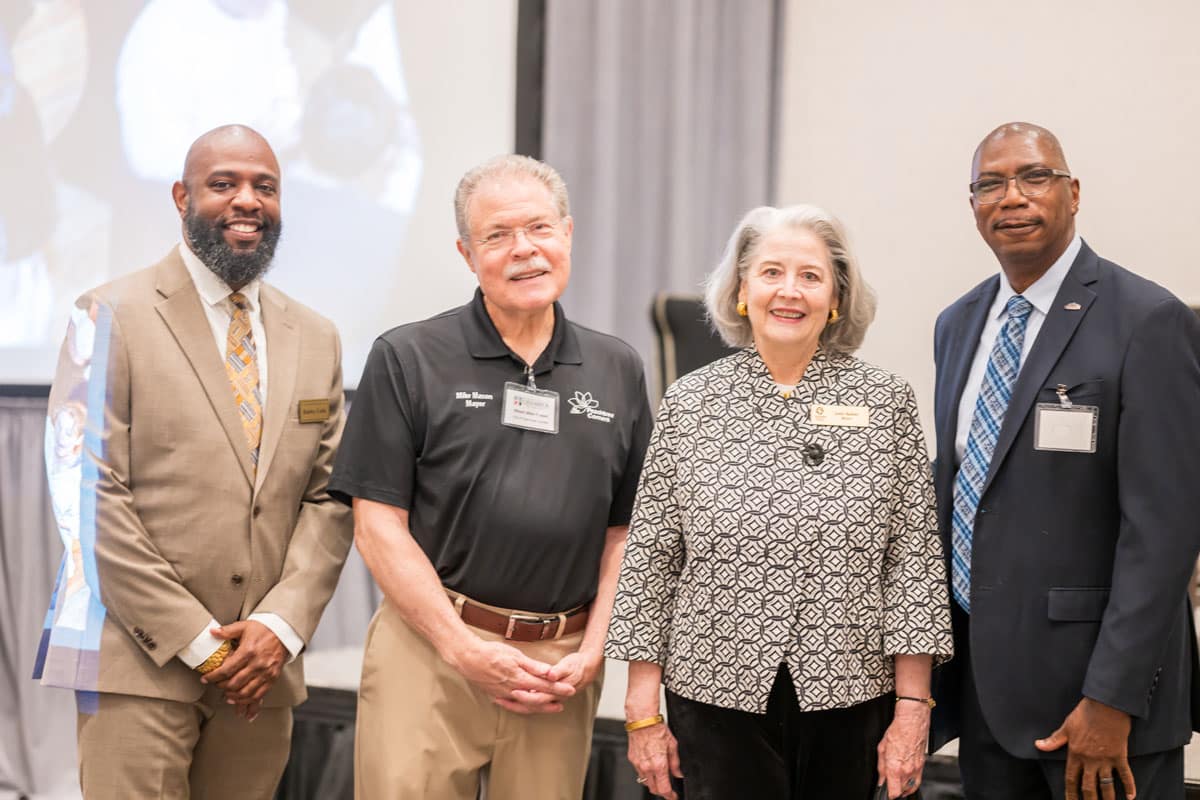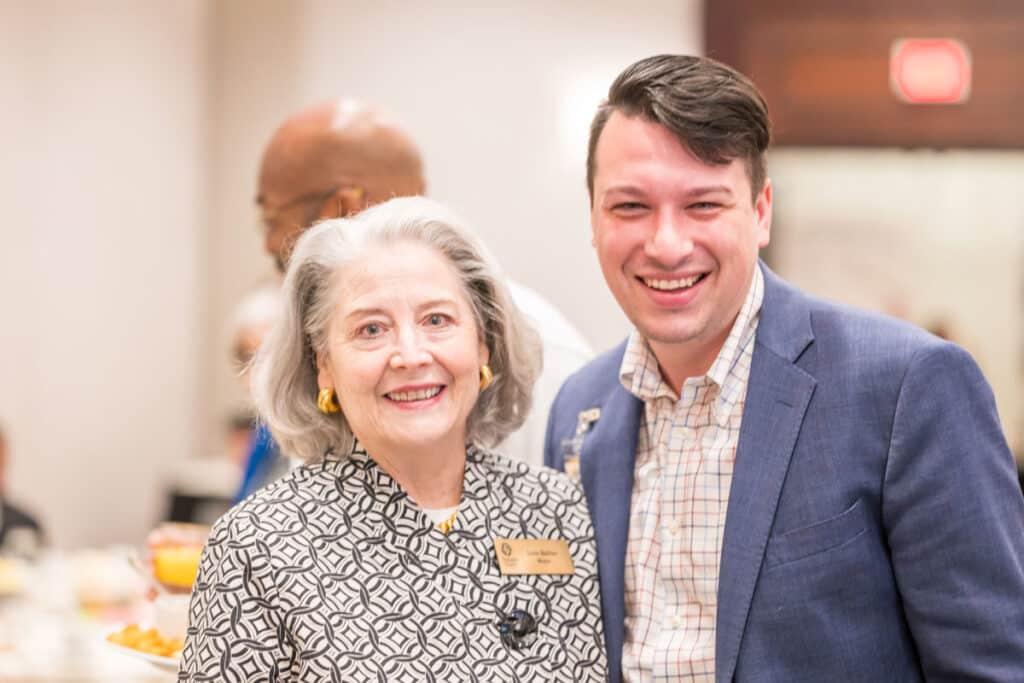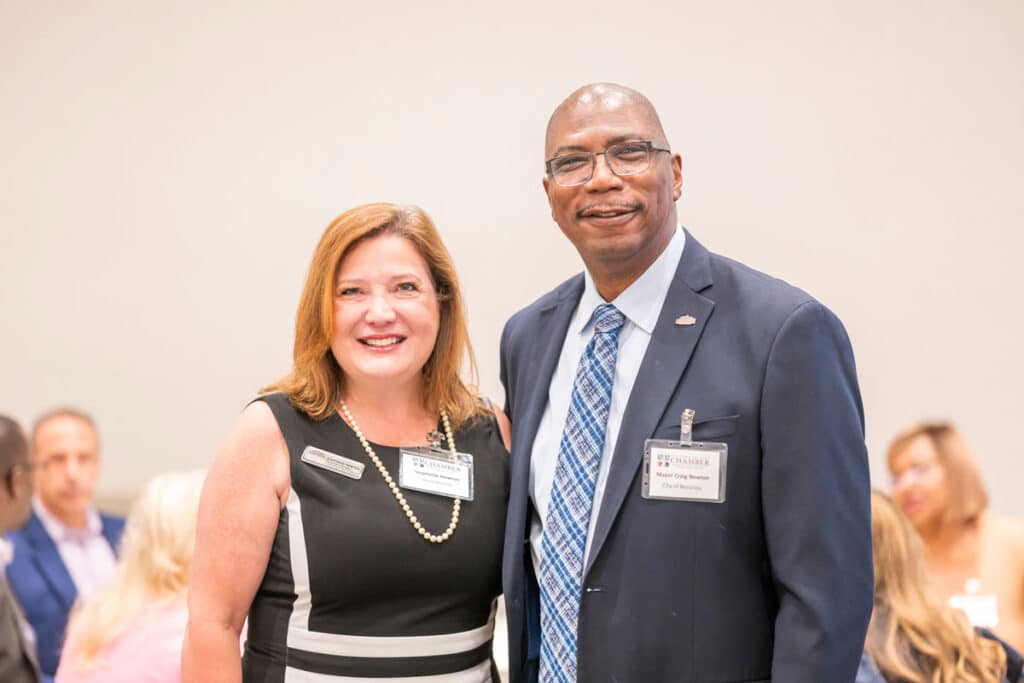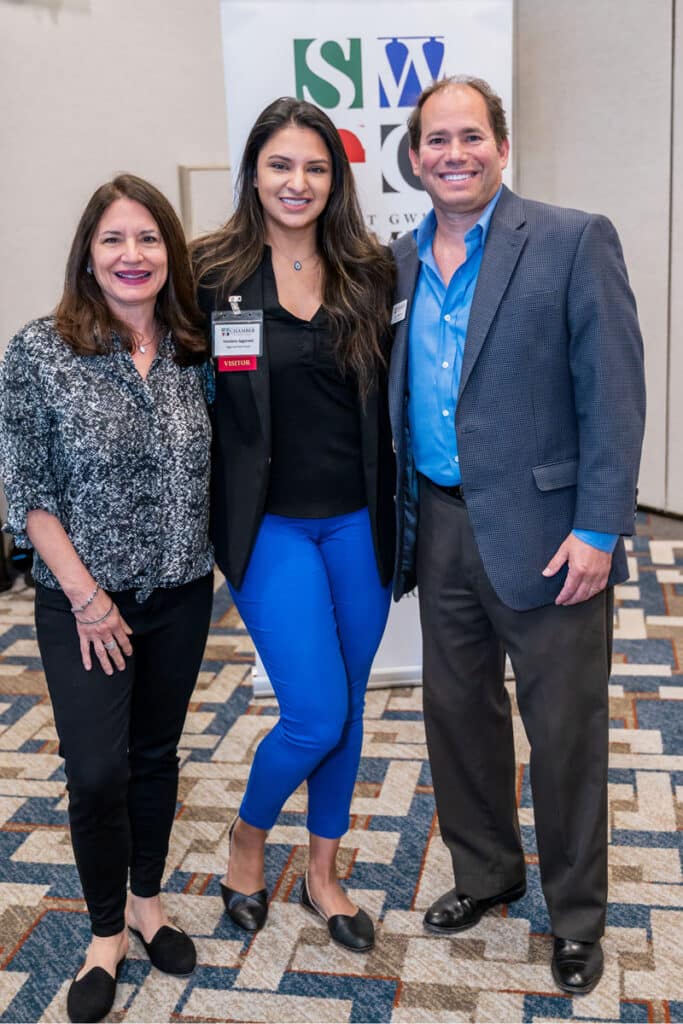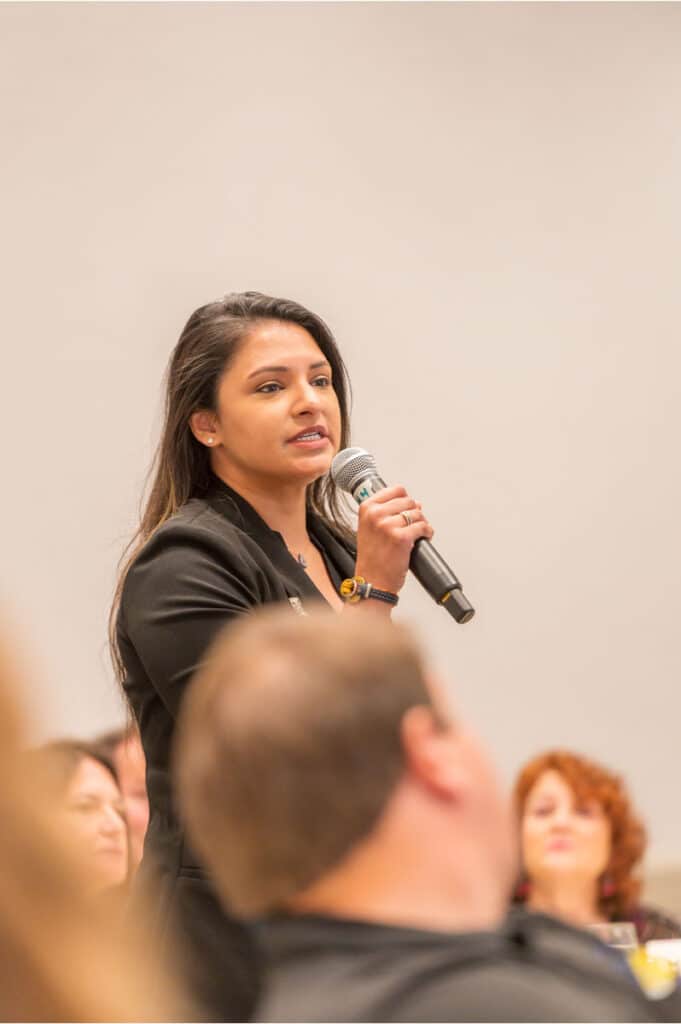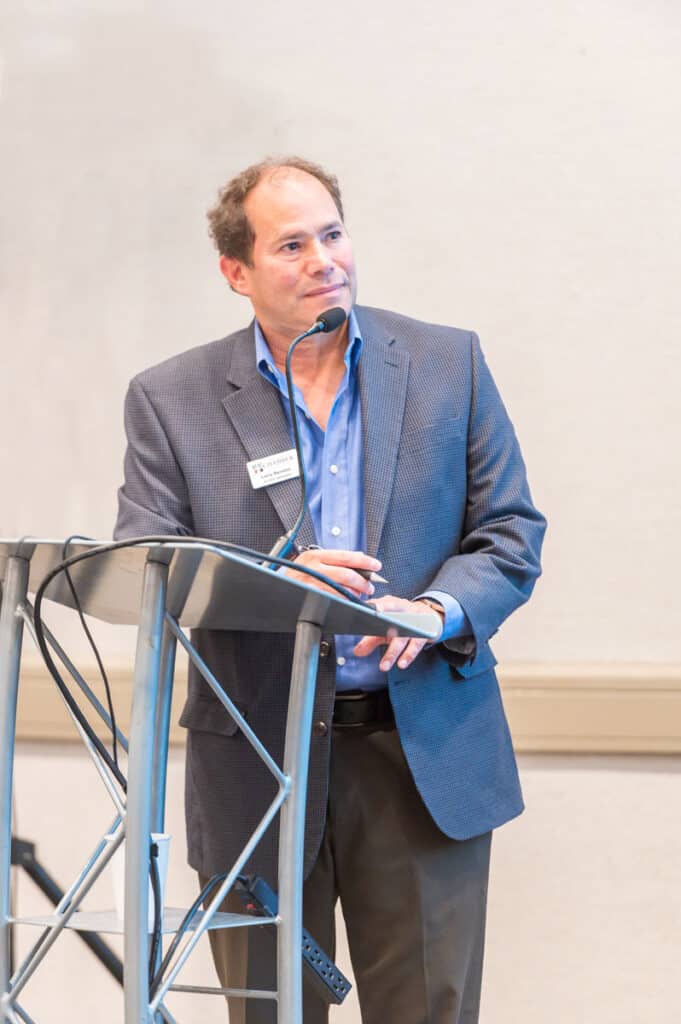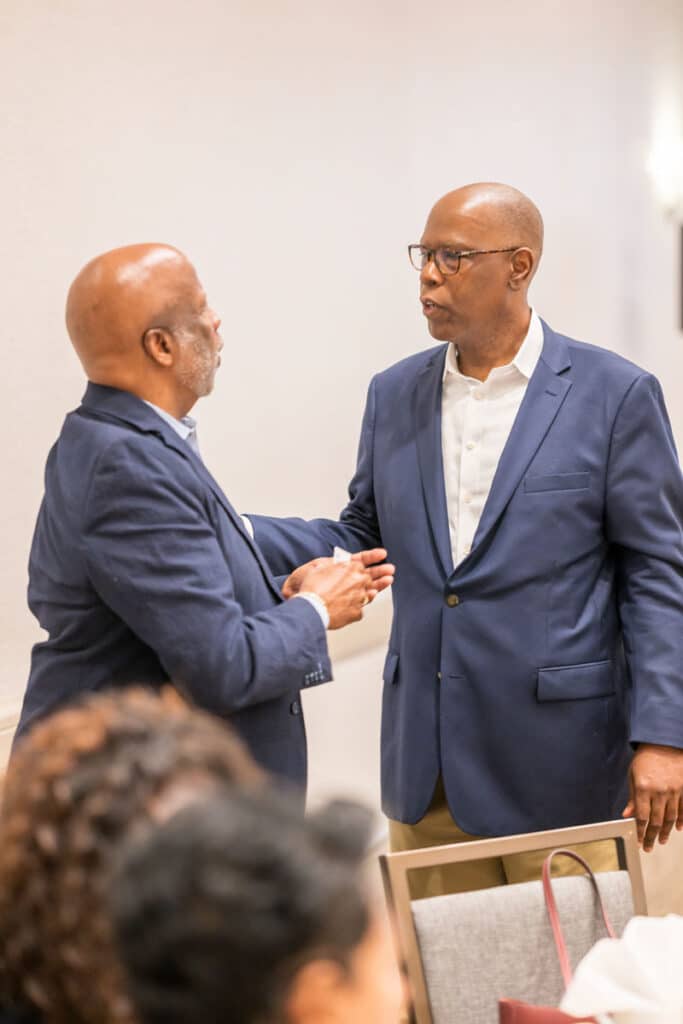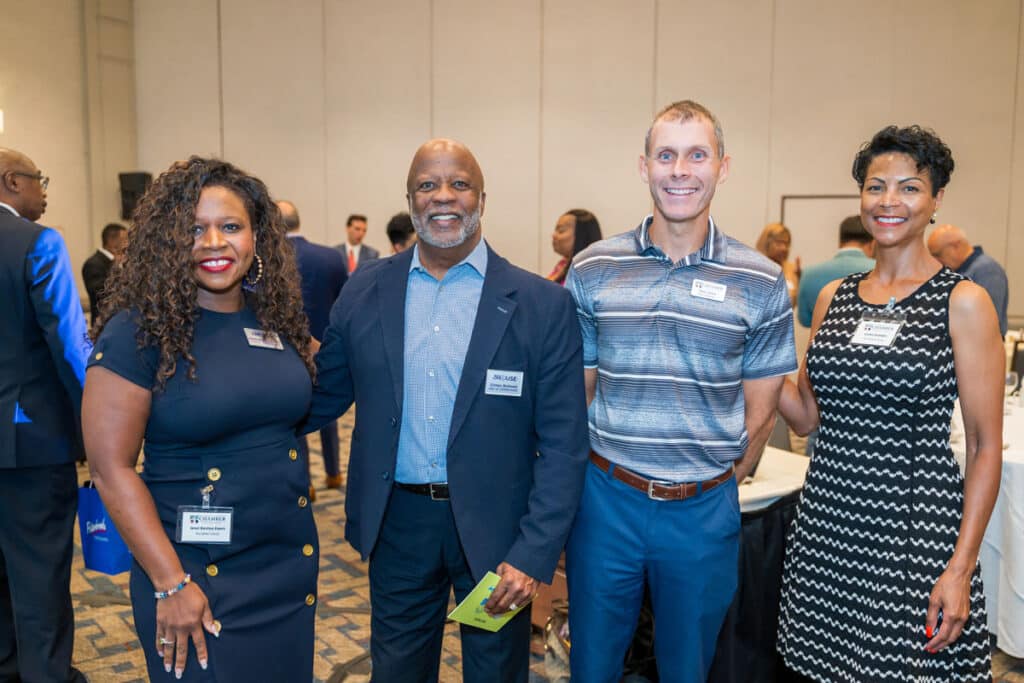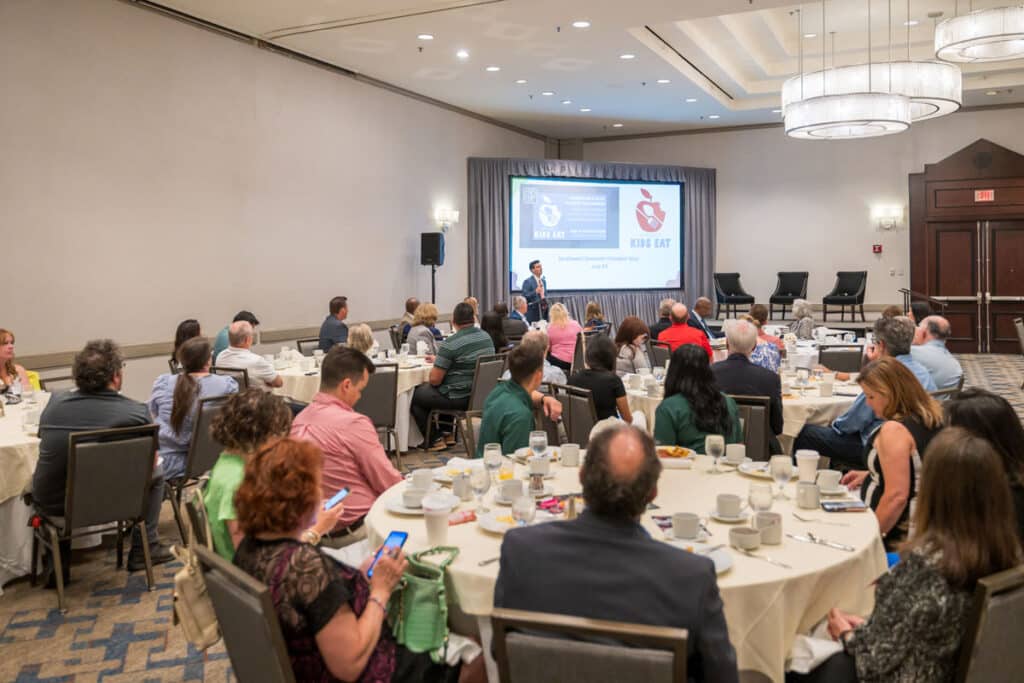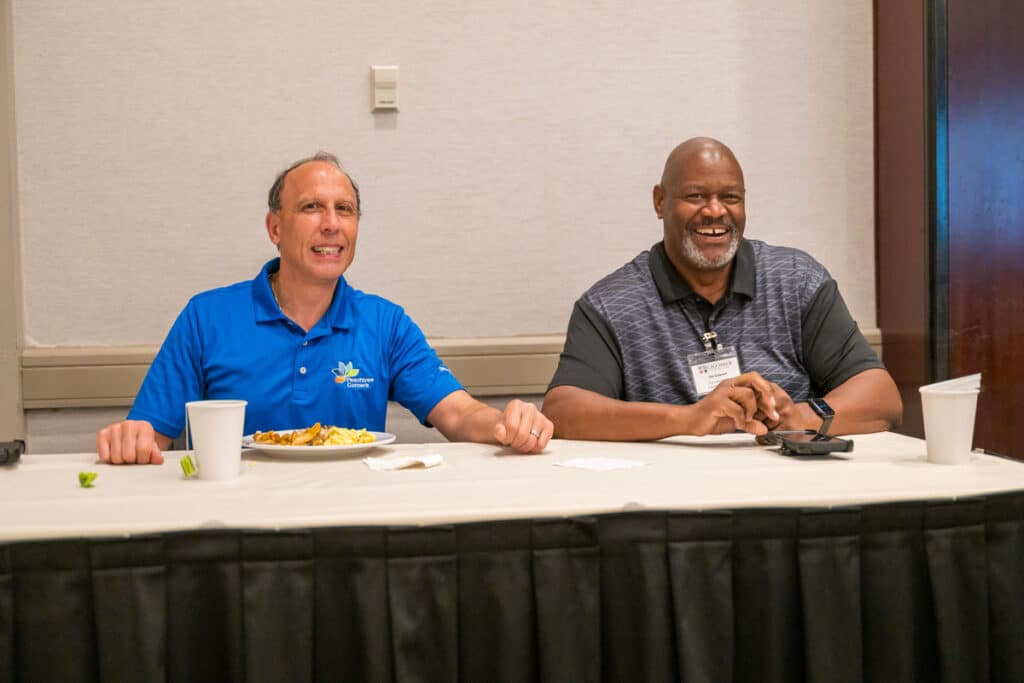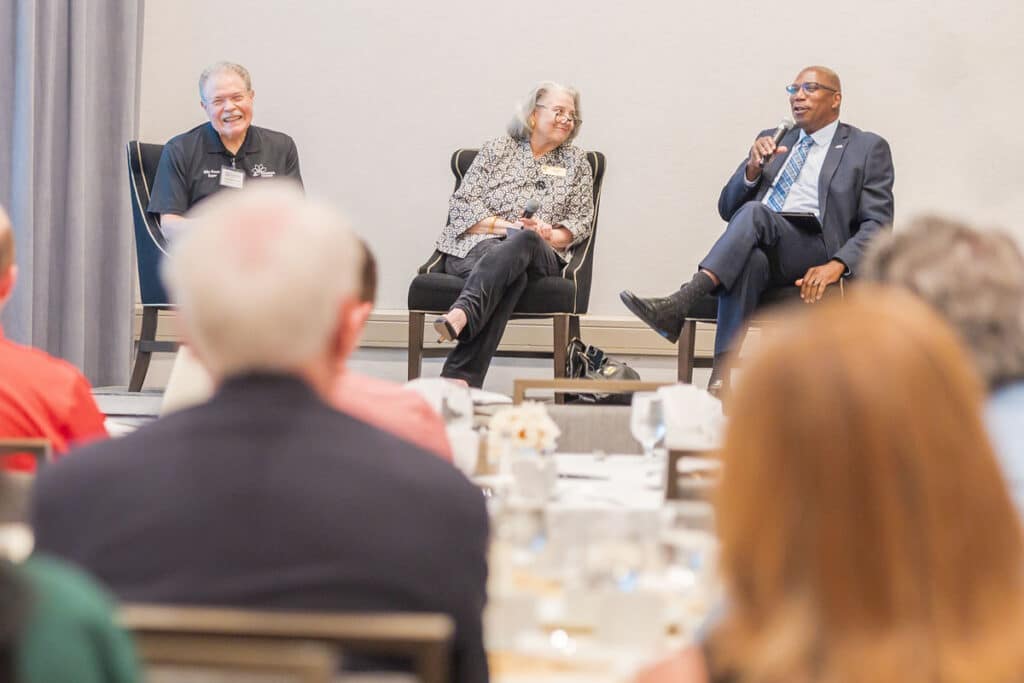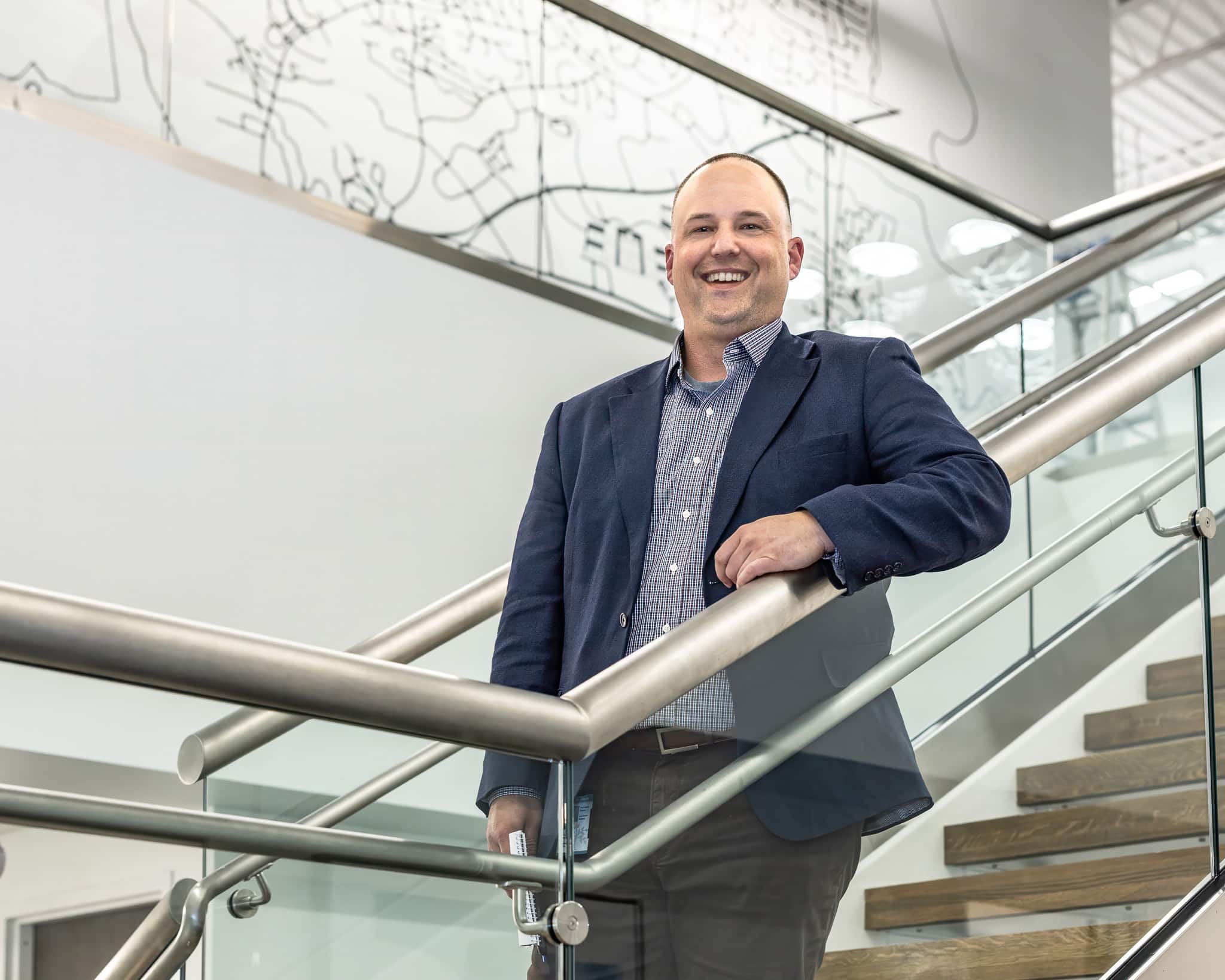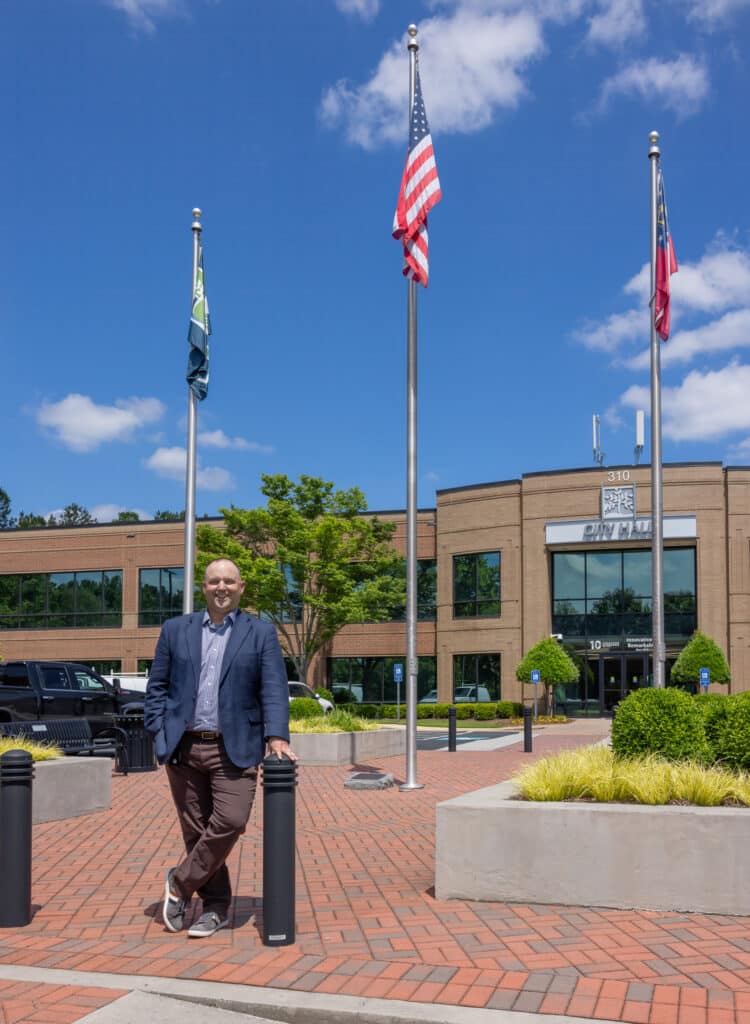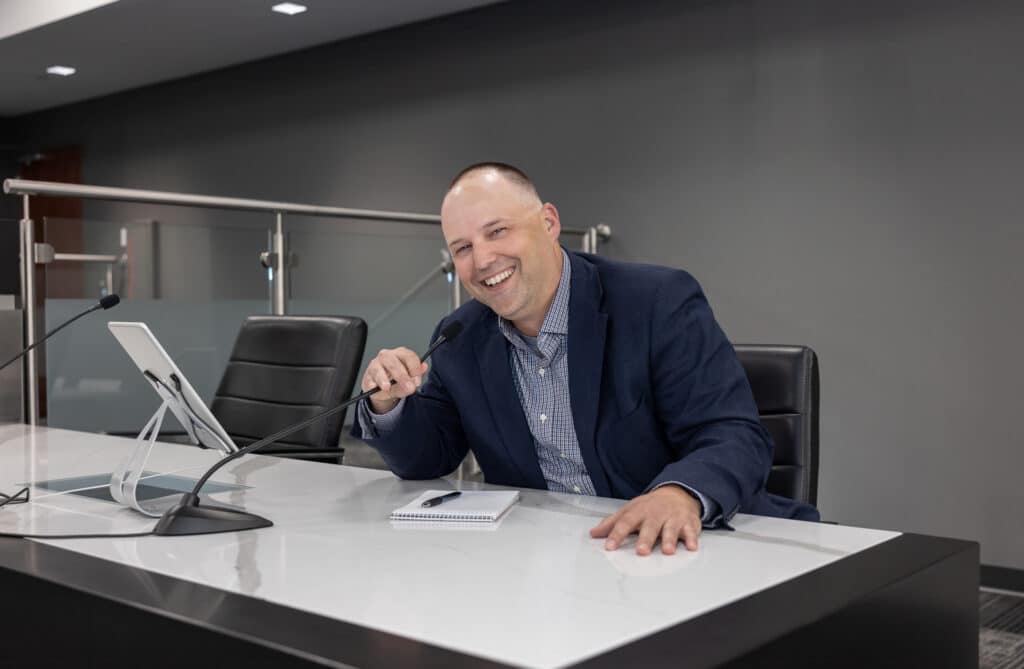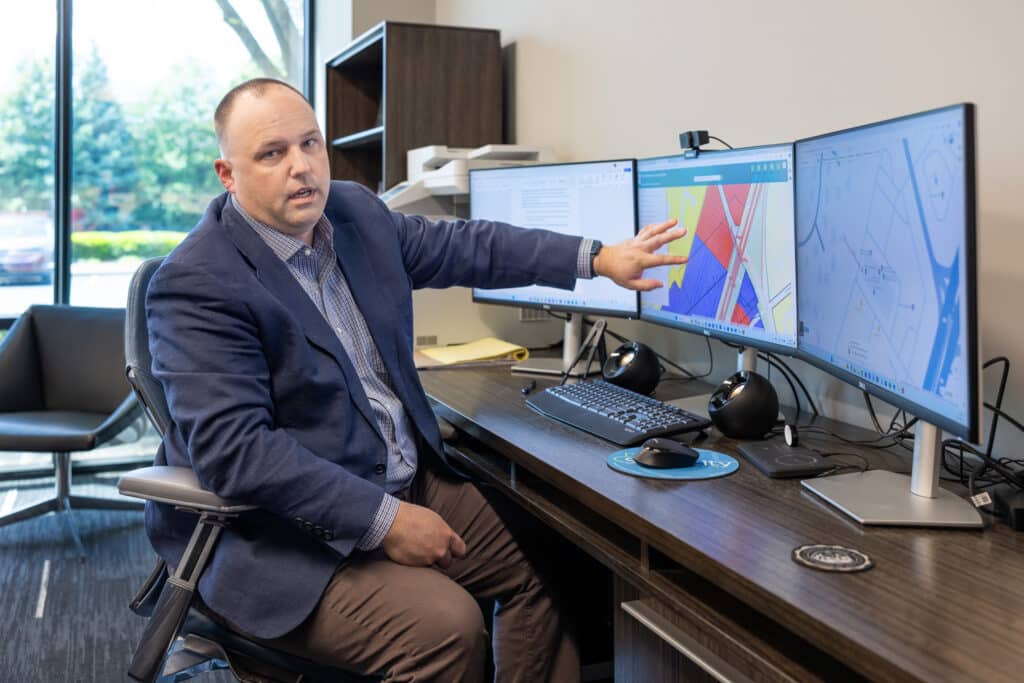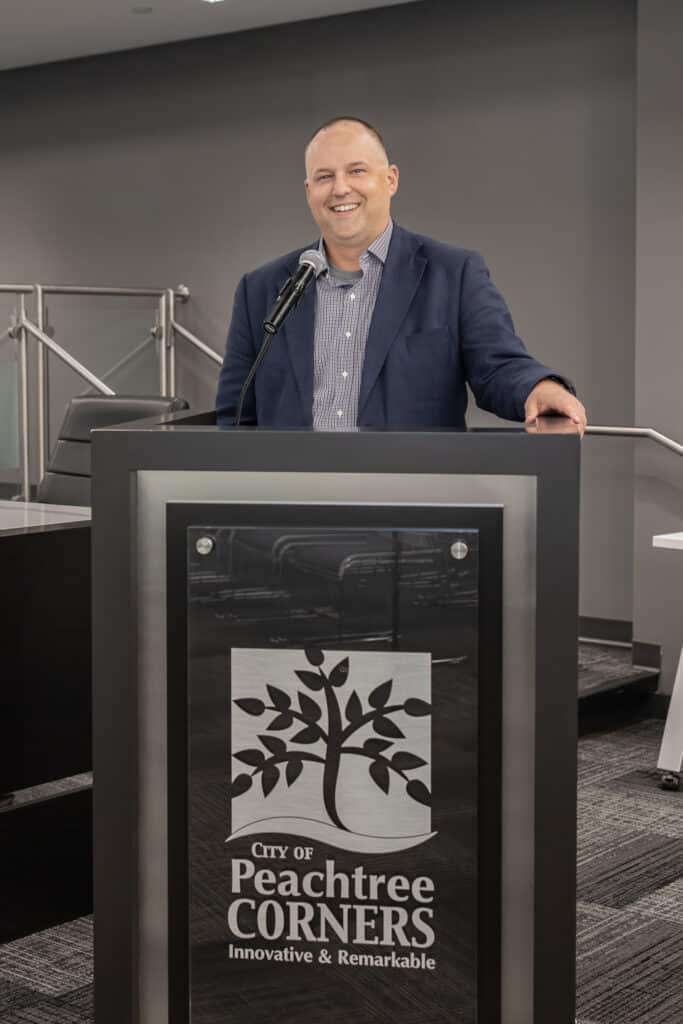With community development director Diana Wheeler stepping down to pursue a consulting career, Peachtree Corners city leadership turned a challenge into an opportunity.
In January, Shaun Adams was hired as the assistant city attorney to oversee compliance for land use and economic development-related matters and help with legal issues.
His background in public and private sector development made him the ideal replacement.
As luck would have it, Adams moved to Georgia in 2005, selling real estate while attending law school.
“I actually started working down at the capital a lot, lobbying on various policies right out of law school,” he said. “I was the legal counsel for the Senate Judiciary, and that exposed me to ACCG, which is the State County Association, which represents all staff and elected officials for counties across the state.”
With the motto, Advancing Georgia’s Counties, ACCG helps with the policy aspect of things like training and education.
“While I was a lobbyist for them, I focused on economic development, infrastructure-related issues and whatever policies went into place,” Adams said. “We also went around the state and trained our commissioners and their staff on some of those policies and put their new processes in place.”
Local government possibilities
“After a handful of years, I got lured away into the private sector,” he said.
Working on land use and government relations matters from the other side of the table, Adams represented developers and investors.
“Sometimes [investors would] come to me with a property that they bought, and they’d say, ‘Hey, we bought this on investment. We’d like to see how we can make the highest and best use of it. Help us create a vision,’” he said. “So, I helped put a team together to determine what we thought could go on the site based off of local government zoning.”
His job entailed working with architects and engineers to design the site and help the client take it to market. Ultimately, the contract purchaser would come in and seek needed entitlements.
“I would help with that,” Adams said. “Those were the fun ones because you got to start on the ground.”
Adams got to know many different local government jurisdictions and worked extensively around metro Atlanta on various matters. On a busy week, he may work with five different jurisdictions across the state.
As a family man with a wife and two sons, he began looking for something that would keep him closer to home.
A perfect fit
City Manager Brian Johnson says it was serendipitous that Adams was looking for a position at a time when the city needed someone like him.
“It’s actually a hard position to fill, and I just happened to catch him,” said Johnson. “We were familiar with each other because he’s represented a number of clients coming before the city.”
Johnson said that Adams was legal counsel for some of the most significant developments in the last few years: North American Properties purchasing and revitalizing The Forum, housing development Waterside, and Intuitive Surgical moving its headquarters from the West Coast.
“He was on the other side of the table as we worked together to make these projects ultimately better for the city and better than they were upon their initial submittal,” Johnson said.
“And I knew then that he was a really knowledgeable guy that really knows how to deal with people. He’s a problem solver. He’s always looking for ways to figure out how to resolve conflict and navigate minefields as it relates to land use and all the laws and zoning that apply to it,” he added.
Changes to the job
Although Wheeler is no longer a staffer, she’s still doing work for the city.
With Adams’ legal background, the events planning team will be transitioning out from under community development.
“By taking that off my plate, it’ll allow me to do more with the legal side of things that the position didn’t do previously,” he said.
There will also be a shift with code enforcement duties moving under Chief Marshal Edward Restrepo.
“I moved code enforcement underneath the city marshal’s office because code enforcement and law enforcement are almost like fraternal twins — they both do very similar things,” said Johnson. “Each of them is enforcing a different level of law. Code enforcement is municipal code, and law enforcement is state code, but they work hand in hand.”
The events planning through the end of the year has already been moved from the community development director’s department. As a consultant, Wheeler will work with other contractors to manage the happenings at the Town Center. Director of Communications Louis Svehla has already moved into managing premier events, Johnson said adding that the city may use more consultants in the future under Svehla’s management.
“He has really shown his ability to manage special events very adeptly. He really showed me that skill set when we had last year’s Criterium bike race,” said Johnson. “I decided to take advantage of some opportunities, including our partnership with Audi, which we were going to announce to the whole vulnerable road user thing.”
With only three months to prepare, Svehla pulled off the event without a hitch.
“He did an outstanding job and so he is capable of taking the management of our community events, our concerts and stuff,” said Johnson.
Johnson said the city is still utilizing consultants for some aspects of special events, but if consultant fees become more expensive than hiring someone full-time to assist Svehla, he’ll make that call.
“All those moves have happened, and I’ll sum it up by just saying that I’m just playing to the strengths of these people and utilizing a great team that I have, and it’s working out really well,” Johnson said.

